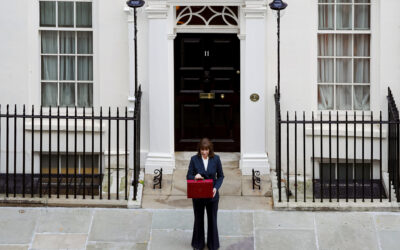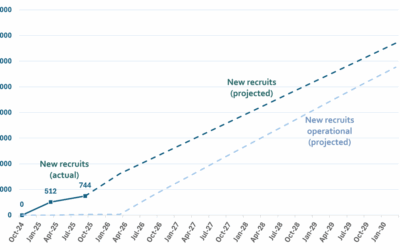- The Government has summarised responses received to a consultation on raising standards in the tax advice market undertaken by the previous Government. Autumn Statement set out new measures and further consultation.
- These measures completely ignore the findings from the consultation and do not address many of the problems in the tax advice market, specifically poor standards of tax advice and ‘rogue advisors’ marketing tax avoidance schemes – many of whom deliberately eschew direct interaction with HMRC to remain undetected.
The new Government recently outlined the next steps in response to the consultation on raising standards in the tax advice market, undertaken earlier this year. The consultation sought to address growing concerns over inconsistent standards among tax advisors, consumer vulnerability to poor advice, and the need to improve overall transparency and accountability in the sector.
The objectives behind this consultation were ambitious; remove substandard and unscrupulous tax practitioners from the market and improve confidence in the quality of tax advice and services, amongst taxpayers and their advisers.
In response to the consultation, the Government has announced the introduction of two measures:
- It will mandate registration for tax practitioners who interact with HMRC from April 2026
- Tax practitioners submitting income tax repayment claims require an Advanced Electronic Signature from their clients
It also intends to consult in the future on measures to increase HMRC’s powers to act against tax practitioners who facilitate taxpayers’ non-compliance. However, these measures do not begin to address the main issues affecting the tax advice market, and the promise of more consultation rather than action is not reassuring.
The wild west of tax advice
In the UK anyone can provide tax advice, without any kind of qualifications, knowledge or experience. This unregulated landscape leaves taxpayers vulnerable to substandard advice from unqualified advisors and exploitation by ‘rogue advisors’ who promote dubious schemes or excessive repayment claims. If HMRC subsequently discover non-compliance with a tax return then the taxpayer is liable for making good the amount, plus interest and penalties. There is very limited recourse in contract law against the adviser even if they can be traced.
The consultation originally set out ambitious goals to address these issues: establish regulatory oversight where none currently exists, reduce the rates of non compliance across the tax agent and adviser market, and make it more difficult for unscrupulous practitioners to operate. Unfortunately, the Government’s response indicates a lack of political will to act on these deeper, systemic problems and has quietly rowing back on the goals of the consultation, instead opting for a couple of measures that may have almost no impact.
Mandatory registration
From April 2026, all tax practitioners who ‘interact with HMRC’ will need to register with the tax authority.
However the impact of this mandatory registration will depend greatly on the meaning given to ‘interact with HMRC’. If it means filing prepared tax returns and claims and being able to deal with correspondence on the taxpayer’s behalf then this has long been mandatory, and approved tax agents and legitimate advisers will be registered already. If it seeks to include an adviser preparing the claim or tax return which is then handed back to the taxpayer to file themselves, it’s difficult to see why advisers who deliberately operate in the shadows in this fashion would suddenly register, particularly as there is no mention of any sanction for advisers continuing to remain unregistered when the requirement has become mandatory. Without this back up it’s unlikely that much changes.
HMRC might hope that this requirement will help them identify rogue advisors who routinely provide poor advice or promote tax avoidance schemes, but registration alone does not guarantee that tax practitioners meet any professional or ethical standards and may even create a false sense of security among taxpayers, who might assume that HMRC’s registration implies some level of endorsement.
HMRC need to do much more to trace where the claim or return has been prepared by an adviser but submitted by the client taxpayer, and this is not what the measure is trying to achieve.
The measure also relies on HMRC having sufficient resources to actively monitor activities of thousands of tax practitioners, spotting patterns of behaviour and acting in response. As our recent State of Tax Administration report identified, HMRC is currently under-resourced. This would therefore require a commitment by the government to properly fund HMRC to ensure it can spot patterns of either substandard advice or more nefarious behaviour, and powers to take proportionate action.
Advanced Electronic Signature for repayment claims
The government has also introduced a requirement for practitioners submitting income tax repayment claims on behalf of clients to obtain an Advanced Electronic Signature from the client. This is intended to provide an extra layer of security, linking the taxpayer to the claim made in their name and minimizing fraudulent claims which has been an issue in recent years.
This may be a positive step in improving security for taxpayers who rely on intermediaries to handle their claims. However, the measure doesn’t contribute to the overall competency or ethics of the advisors themselves, nor does it help with claims that are properly authorised with a signature but the claim itself is invalid, as HMRC continue to operate a ‘pay first, check later’ regime for refunds. Additionally, it could create accessibility issues for clients without digital skills or reliable internet access.
Further consultation
The government plans to consult on tougher sanctions for tax practitioners who enable their clients to underreport or evade tax. Sanctions could include suspension or revocation of registration, in the hope that it prevents repeat offenders from continuing to practice.
Stronger sanctions are certainly aligned with the goal of reducing unethical practices but would need to be backed up with financial penalties and possibly criminal offenses to give HMRC a robust mechanism to address repeated misconduct. However, without broader reform, we expect HMRC’s sanctions to fall short of what’s required given the risks of unqualified or unscrupulous practitioners getting caught are low and the sanctions are not enough of a deterrent.
Missed opportunity
The government’s response to the consultation on raising standards in the tax advice market introduces measures that fall well short of the consultation’s original ambitions. There is a demonstrable lack of political will to take action in this space, which is a missed opportunity given the size of the tax gap, some of which is due to careless errors by poorly informed taxpayers or their agents making mistakes, but also includes deliberate misconduct and criminal evasion.



